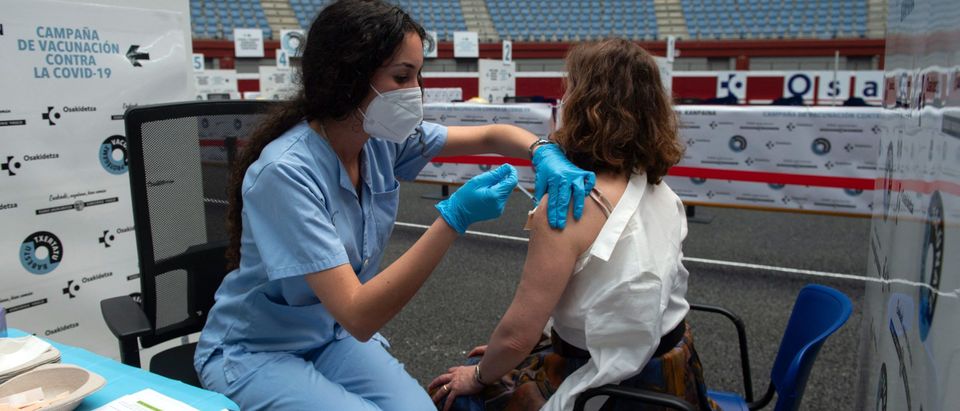The more scientists learn about natural immunity to COVID-19, the stronger it appears to be.
A pair of recent papers in Nature established that immune response to COVID-19 persists for up to a year after infection, and the body’s mechanisms for fighting the virus evolve during that time and may even grow stronger. Earlier research has indicated that the natural immune response granted by surviving a bout with the virus may offer comparable protection to a vaccine, although the science isn’t entirely clear.
The continued evolution of “memory cells” outlined in a pre-review Nature paper shows signs that the body may be able to adapt to fend off new variants over time. That may be key in determining whether the masses will require booster shots to supplement an initial round of vaccination.
More studies are affirming the power of natural immunity, despite the old guard establishment dismissing it and it’s contribution to population immunity. This study out yest in Nature Medicine looked at bone marrow samples of previously infected people: https://t.co/t4UxuqrqfT
— Marty Makary MD, MPH (@MartyMakary) May 26, 2021
Typically, booster shots are needed for pathogens that can evolve and present varying threats over time, such as annual flu strains that differ from season to season.
“The reason we get infected with common coronaviruses repetitively throughout life might have much more to do with variation of these viruses rather than immunity,” Dr. Scott Hensley of the University of Pennsylvania told The New York Times.
An early 2021 study from Denmark found that natural immunity granted at least 80% protection from reinfection, although the protection was much weaker in elderly patients, who were only protected about 47% of the time. Notably, the study was unable to determine how long natural immunity may last, or what degree of protection was granted to those who were still re-infected. (RELATED: Should You Get A Vaccine If You’ve Already Had Coronavirus?)
That missing information is critical. The severity of cases in re-infected individuals with natural immunity is unknown, while the three approved vaccines in the U.S. are shown to protect against serious infection and death in almost all cases.
A January publication from the National Institutes of Health stated that more than 95% of recovered COVID-19 patients retain “durable memories” of the virus in their immune systems for up to eight months post-infection. Still, many experts say previously infected individuals should still get vaccinated, because natural immunity may wane.
“Nobody knows exactly how protected they are. Immunity varies from person to person, and wanes somewhat over time,” Dr. William Hanage of Harvard’s T.H. Chan School of Public Health told the Daily Caller News Foundation. He added that there is evidence of a decrease in immunity after eight months.
It is also still the case that COVID-19 presents a greater health risk, on average, than getting vaccinated. (RELATED: Where’s The CDC Guidance For People Who Recovered From COVID-19?)
“When you get vaccinated, all you get exposed to is the spike protein of the virus. It doesn’t replicate within you. You get immunity to that spike protein, and that’s what prevents infection,” Dr. Dean Blumberg of UC Davis Children’s Hospital said to ABC10 Sacramento. “If you get infected, you get the whole virus invading your body. It can go anywhere. It can go to the heart. It can go to the brain. It’s very dangerous.”
Evidence continues to mount in support of strong natural immunity. One study from Qatar found that previously infected people may have up to 95% protection for some period of time, and other SARS and MERS viruses have seen natural immunity last from two to three years in some instances.


